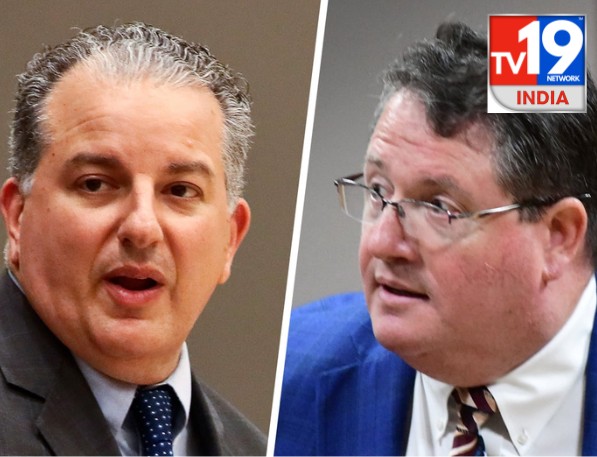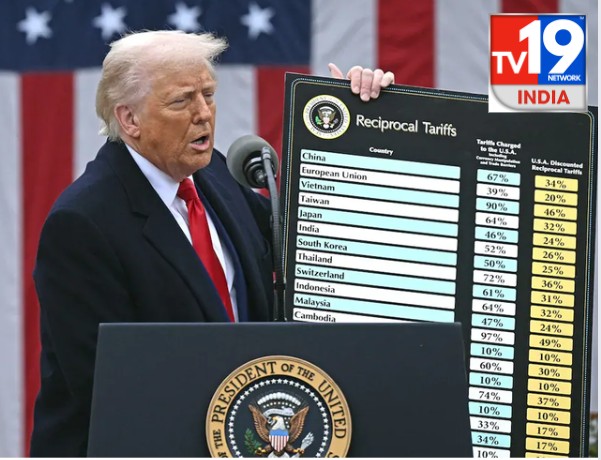Canada US Economic Era Ends as Trump Imposes Devastating Auto Tariffs Says Carney
Ottawa– The era of deep economic, security, and military ties between Canada and the United States “is over,” Prime Minister Mark Carney declared Thursday, following President Donald Trump’s announcement of steep new auto tariffs. The 25 percent levy on vehicle imports to the U.S., set to take effect next week, threatens to cripple Canada’s auto industry, which supports an estimated 500,000 jobs.
Carney, who is campaigning ahead of Canada’s April 28 election, temporarily suspended his campaign to return to Ottawa for an emergency cabinet meeting. Senior officials are working on immediate countermeasures to mitigate the economic fallout from what the prime minister called an "unjustified" and "damaging" decision by the U.S. administration.
"This is a clear breach of our existing trade agreements," Carney said, referring to the United States-Mexico-Canada Agreement (USMCA), which was meant to ensure stability in North American trade. "We will not sit idly by while Canadian workers and industries are unfairly targeted."
The tariffs come at a critical moment in Canada-U.S. relations, with Carney warning that the move signals a fundamental and irreversible shift in how the two countries interact. “Regardless of any future trade deals, there is no turning back,” he said, indicating that Canada must now prepare for a long-term recalibration of its economic and security strategies. The auto industry is a pillar of Canada’s manufacturing sector, with key production hubs in Ontario and Quebec supplying vehicles and parts to American markets. Industry leaders and labor unions reacted with alarm, warning of potential mass layoffs, plant closures, and broader economic consequences.
“This is an existential threat to the Canadian auto sector,” said Jerry Dias, former president of Unifor, the country’s largest private-sector union. “Tens of thousands of workers and their families will be directly affected, and the ripple effects across supply chains will be devastating.”
In Washington, Trump defended the tariffs as a measure to protect American jobs, arguing that foreign auto imports had contributed to domestic job losses in the U.S. manufacturing sector. “We’re putting American workers first,” Trump said at a press briefing, reiterating his long-standing “America First” economic stance.
Canadian officials, however, dispute this characterization, pointing out that the integrated North American auto supply chain has long benefited both nations. Foreign Affairs Minister Mélanie Joly condemned the move as a “reckless attack on a key ally” and vowed that Canada would respond with strong retaliatory measures.
As tensions mount, Ottawa is exploring potential countermeasures, including retaliatory tariffs on key American exports such as agricultural products, consumer goods, and industrial materials. The government is also considering financial support packages for affected workers and industries.
Political analysts say the escalating trade conflict could have significant implications for Canada’s upcoming federal election. Carney, a former Bank of Canada and Bank of England governor, has positioned himself as a steady hand in turbulent economic times. However, opposition leaders are seizing on the crisis to question his leadership.
Conservative leader Pierre Poilievre accused Carney of failing to secure Canada’s economic interests, stating, “This government had years to prepare for a trade war with the U.S., and now Canadian workers are paying the price.” Meanwhile, New Democratic Party leader Jagmeet Singh called for an aggressive government response, including expanded investments in domestic manufacturing.
With the tariffs set to take effect in a matter of days, Canadian officials face urgent decisions on how to shield the economy from potential catastrophe. Carney's warning— that Canada must now fundamentally rethink its relationship with the United States— underscores the gravity of the moment.
As the crisis unfolds, the once-unshakable economic and security partnership between Canada and the United States appears to be entering uncharted territory, with consequences that could reverberate for years to come.







